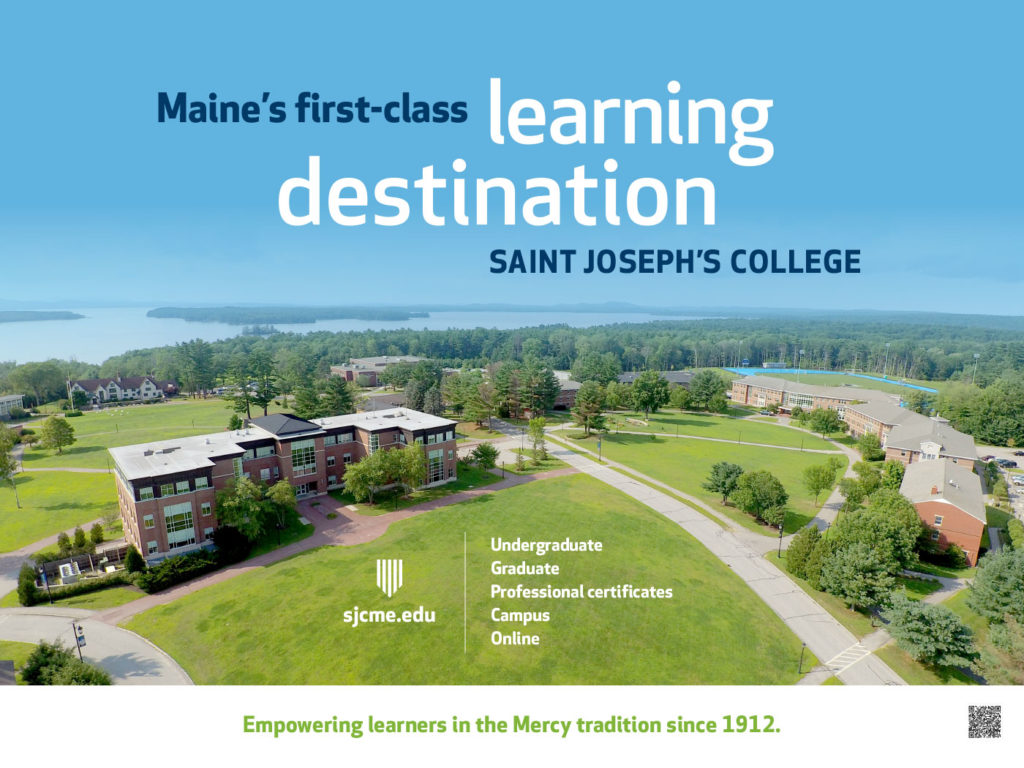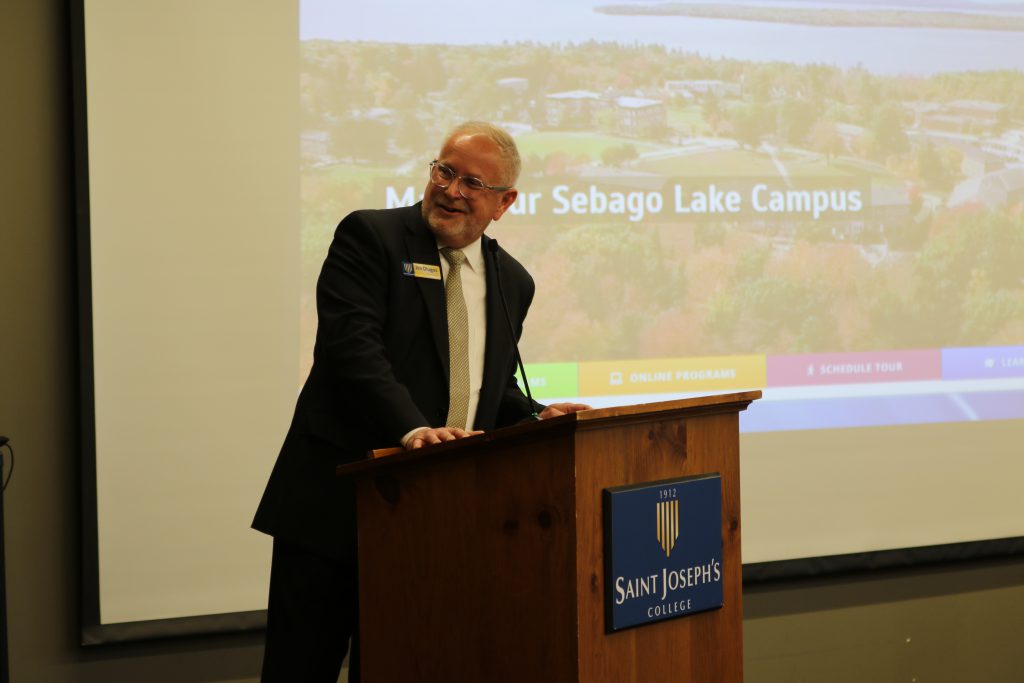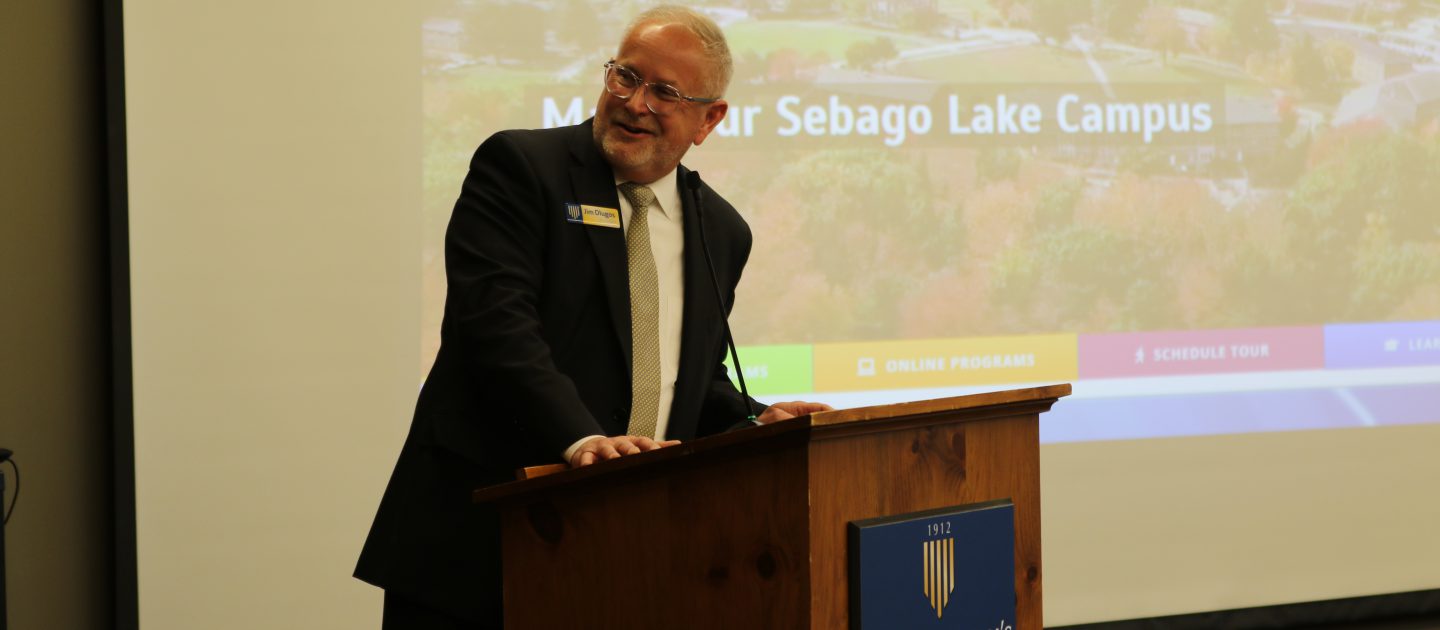Anyone leaving from or arriving at the Portland JetPort walks by a large, panoramic image of our beautiful Sebago Lake campus. The text proclaims that Saint Joseph’s College is “Maine’s first-class learning destination.”

Both the image and the text are intended to attract the busy traveler’s attention.
Of course, the beauty of our campus speaks for itself. But what do we mean by “Maine’s first-class learning destination”?
Today, “destination” most obviously suggests a special place—hence, the concepts of “destination weddings” and “dining destinations”—where the setting becomes part of the experience.
And while the College is certainly that kind of destination (even in the cases of those two particular examples!), there is an older sense of “destination” that informs our use of this term.
That definitive source of all things related to the English language, the Oxford English Dictionary, points out that in its earliest uses, destination applied to both places and people. A person’s destination was connected to her or his sense of purpose.

Fostering our individual and shared sense of purpose is central to what we do and have always done at Saint Joseph’s College. Beginning with those four students who inspired Mother Xaveria to begin the College, over the years we have grown by embracing new groups of learners who both had and simultaneously discovered their purposes. Undergraduate men joined the community in 1970 and were followed within a decade by our first groups of “non-traditional” students in what was known as the “external degree” program—learning and learners at a distance. Eventually our undergraduates were joined by graduate students.
This May we celebrated the 106th Commencement at Saint Joseph’s College. The graduating class had 540 members who came from 40 states and six countries beyond the United States. All because at various moments the College was able think beyond what was.
Guided by the core elements of our strategic plan, Sustaining the Promise, Saint Joseph’s is undertaking a significant transformation in how we see ourselves and the special role our College can play in today’s dynamic post-secondary educational environment.
While we remain absolutely committed to our core educational programs–our undergraduate and graduate degree programs offered on campus and online– we are also committed to re-imagining how those programs fit into an expanding set of opportunities.
Put simply, we are in the process of evolving from a “college” into a “learning community” where everything we do is connecting to learning, but not necessarily to a degree. At the center of all of this activity and energy is the individual learner and her or his sense of purpose.
And as these learners discover their destinations, the College further realizes its purpose as a special place dedicated to the Common Good.
